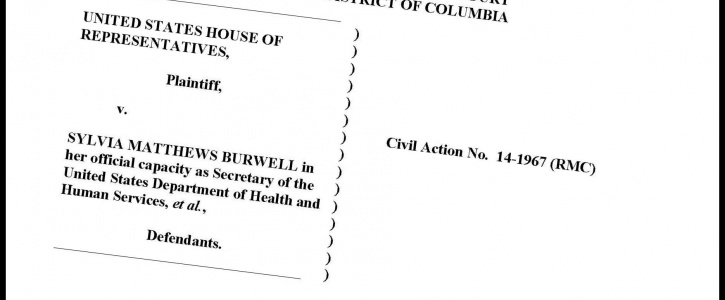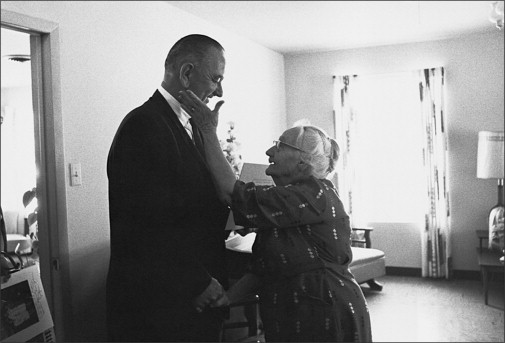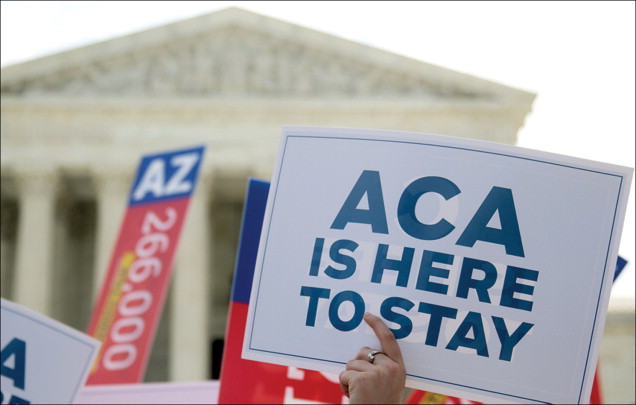Category: The Lancet
U.S. House of Representatives possibly “injured” by ACA spending, judge OKs lawsuit
Susan Jaffe | Washington Correspondent for The Lancet | 15th September 2015
A new threat to the Affordable Care Act emerged last week when a federal judge decided to allow an unusual lawsuit by Republicans in the U. S. House of Representatives against President Barack Obama, claiming that his Administration violated the U. S. Constitution by spending billions of dollars for the Affordable Care Act that Congress did not approve. [Continued here] House of Representatives 091515
…Billions served but Cleveland Clinic says no thanks to McDonald’s
Susan Jaffe | Washington Correspondent for The Lancet 9th September 2015
McDonald’s, the giant fast-food restaurant chain, has been adding healthy options to its menu of burgers, fries and shakes, but the new choices are too little, too late for the Cleveland Clinic.
After 20 years of serving patients, visitors, and Clinic employees in Cleveland, Ohio, the restaurant’s last day will be September 18. The world renowned hospital is not renewing its contract with McDonald’s.
“As a part of Cleveland Clinic’s commitment to health and wellness, we have made a number of changes across our health system over the past ten years that promote healthy food choices, exercise, and a smoke free environment,” said Eileen Sheil, the Clinic’s executive director for corporate communications, explaining why McDonald’s had to go. [Continued here]
…Home-Care Workers
![]()
Susan Jaffe | Washington Correspondent for The Lancet | 28 August 2015
Home-care workers are excluded from the federal law requiring most employees to receive a minimum wage—currently $7·25 an hour—and 150% of that pay when they work overtime. After 40 years, the US Department of Labor (DOL) issued rules eliminating that exemption. The new rule was supposed to take effect last January but it was blocked by a lawsuit filed by associations representing companies that hire these workers. [Continued here.] [with video of Illinois Congresswoman Jan Schakowsky shadowing home-care worker Gilda Pipersburgh]…
Congressional showdown threatens NIH funding boost
 Volume 386, Issue 9996, 29 August 2015
Volume 386, Issue 9996, 29 August 2015
WORLD REPORT Bills providing extra funding for the National Institutes of Health while cutting other programmes could a face presidential veto. Susan Jaffe, The Lancet’s Washington correspondent, reports.
After years of mostly stagnant funding for the US National Institutes of Health (NIH), two powerful congressional committees that control government spending have approved separate budget bills containing record increases for the agency.
But last month, President Barack Obama’s Office of Management and Budget director Shaun Donovan wrote to the chairman of the Senate Committee on Appropriations warning that he expects the president to veto its bill. Among other reasons, Donovan said it “drastically” cuts money for public health programmes including Medicare for the elderly and Medicaid, serving low-income Americans. And it would deny funds for operating the health insurance exchanges essential to the president’s signature health reform law, the Affordable Care Act. [Continued in full text or PDF ]
…Clean Power Plan
Susan Jaffe | Washington Correspondent for The Lancet 25th August 2015
Before President Barack Obama’s Clean Power Plan can inspire other nations to control greenhouse gases by following the USA’s lead in dramatically reducing carbon emissions, the Administration has to convince West Virginia—and at least 15 other skeptical states. [Continued here]
…21st Century Cures
 12 August 2015
12 August 2015
A dispatch from our Washington correspondent on the sluggish progress of the 21st Century Cures Act.
Republicans and Democrats in the U.S. House of Representatives last month overwhelmingly passed the 21st Century Cures Act aimed at speeding up drug development. But the Senate is not expected to vote on its version until next year.
More than 80 percent of the House backed the legislation after it was unanimously — a word rarely heard on Capitol Hill — approved by the House Committee on Energy and Commerce. In the process, the bill was revised to address concerns that drug approvals would happen a little too quickly, circumventing safety and efficacy standards. [Continued here]
…50 Years of Medicare
 Volume 386, Issue 9992, 1 August 2015
Volume 386, Issue 9992, 1 August 2015
WORLD REPORT In July, 1965, Medicare, America’s landmark national health insurance programme, became law. Today, it covers 55 million people. Susan Jaffe, The Lancet’s Washington correspondent, reports.
Richard Troeh joined a very busy solo family medicine practice in 1966 but even with two doctors, their offi ce in Independence, Missouri, seemed just as hectic. The year before, President Lyndon Baines Johnson came to town to sign the Medicare legislation into law at the Truman library. Former President Harry Truman—an advocate of national health insurance since the 1940s—and his wife attended the event and were among the fi rst Americans to receive Medicare cards.
50 years later, the Social Security Amendments of 1965 provide health care for 55 million people older than 65 years or disabled receiving Medicare and nearly 73 million low-income adults, children, pregnant women, and people with disabilities receiving Medicaid, an optional programme also created under the same law.
And in the process, the government programmes have transformed health care in the USA. Medicare is the nation’s largest single purchaser of health care, consuming 14% of last year’s federal budget, or US$505 billion. And it also has a fiercely loyal following that opposes efforts to cut benefits. Speaking earlier this month at the White House Conference on Aging, President Barack Obama drew laughs when he said, “And now we’ve got [protest] signs saying, “Get your government hands off of my Medicare”. [Continued in full text or PDF ] [listen to podcast here]
…US Supreme Court upholds ACA subsidies
Volume 385, Issue 9988, 4 July 2015
WORLD REPORT Officials expect to launch the US President’s new health project later this year. But Congress has yet to decide whether to fully fund it. The Lancet’s Washington correspondent, Susan Jaffe, reports.
Although critics still deride it as Obamacare, President Barack Obama’s Supreme Court victory last week
enshrined the Affordable Care Act (ACA) as one of his greatest domestic accomplishments. The court might have also effectively disarmed the opposition, shifting the debate to next year’s campaign for the presidency as the next chance for critics to try to dismantle the law.
But for 6·4 million Americans who could have lost the health law’s insurance subsidies—the key issue before the court—the historic ruling has a different meaning. “Thank God, I can still get my medical care”, said Jacqueline Clay, a New Jersey woman receiving treatment for breast cancer who turned 61 years of age the day the court upheld the subsidies. “I am not going to die.” [Continued in full text or PDF ]…
Planning for US Precision Medicine Initiative underway
Volume 385, Issue 9986, 20 June 2015
WORLD REPORT Officials expect to launch the US President’s new health project later this year. But Congress has yet to decide whether to fully fund it. The Lancet’s Washington correspondent, Susan Jaffe, reports.
While continuing to defend his besieged health-care reform law against lawsuits and repeal threats, US President Barack Obama is championing a new health initiative. This one also has a bold goal: to radically change the medical treatment patients receive in the USA. “I want the country that eliminated polio and mapped the human genome to lead a new era of medicine—one that delivers the right treatment at the right time”, the President said when he unveiled his Precision Medicine Initiative (PMI) in his annual State of the Union address to the nation in January. …Central to the PMI will be the creation of a research cohort of 1 million US volunteers who agree to provide researchers with biological, environmental, lifestyle, and other information as well as tissue samples….The effort to vastly expand the scope and practice of individually designed treatments based on genetic information could revolutionise medicine, supporters say. But the success of the PMI depends on whether Congress agrees to fund it. [Continued in full text or PDF ] …
21st Century Cures Act progresses through US Congress
![]() Volume 385, Issue 9983, 30 May 2015
Volume 385, Issue 9983, 30 May 2015
WORLD REPORT A bill to speed up the translation of biomedical discoveries is getting wide support, but some argue that it is not adequately funded. Susan Jaffe, The Lancet’s Washington correspondent, reports.
An ambitious bipartisan plan to accelerate medical innovation in the USA is moving ahead in a Congress famous for political gridlock.
The proposed 21st Century Cures Act was approved unanimously on May 21 by the US House of Representatives’ Committee on Energy and Commerce. The massive bill would promote discovery of new medicines and get them to patients more quickly. But the bill’s bipartisan support nearly collapsed when Democrats insisted on additional funds for the two federal agencies intricately involved in carrying out the bill’s far-reaching provisions.
Behind-the-scenes discussions finally yielded an infusion of US$10 billion over 5 years for the National Institutes of Health (NIH). Shortly before the committee vote, $550 million over 5 years was added for the Food and Drug Administration (FDA), which is responsible for ensuring new treatments are safe and effective. …But funding for both agencies did not come easy, is still uncertain, and might fall far short of what is needed. [Continued full text or PDF]…
Obama steps up US campaign on climate change
![]() Volume 385, No. 9978 25 April 2015
Volume 385, No. 9978 25 April 2015
WORLD REPORT In recent weeks, the Obama Administration has unveiled several new initiatives to tackle climate change. The Lancet’s Washington correspondent, Susan Jaffe reports.
Surgeon General Dr. Vivek Murthy and President Barack Obama
With less than half of his final term in the White House remaining, US President Barack Obama is no longer confining his efforts to slow climate change to Congress or the courts, where opponents are trying to block new, tougher environmental rules at every turn.
In the past 3 weeks, his Administration has announced a multifaceted public appeal, including plans to expand public access to tracking the impact of climate change with help from such private sector giants as Google and Microsoft, create a coalition of 30 medical, nursing, and public schools to train health-care providers to respond to the health effects of climate change, and host a climate change and health summit at the White House in the spring….
Last month, the Obama Administration submitted a US climate plan to the UN Framework Convention on Climate Change in preparation for December’s global conference in Paris. But the US pledge to reduce greenhouse gases depends in a large part on power plants reducing their carbon dioxide pollution; the US Environmental Protection Agency (EPA) is expected to finalise limits for power plants this summer. Even before they take effect, 14 states and two coal companies have taken the unusual step of challenging the agency’s still uncompleted rules in federal court.
The President is also making the fight personal, recalling, during an interview on national television, that when his eldest daughter was 4 years old, she had such a severe asthma attack that her parents had to take her to the hospital for emergency treatment. “The fright you feel is terrible”, he said.
Obama warned of increased asthma cases and “a whole host of public health impacts that are going to hit home”, speaking after meeting with the medical and nursing schools coalition. [Continued: full text or PDF ]…
US initiative for prediabetes
IN FOCUS Health officials in the USA want physicians to help to reduce diabetes by asking at-risk patients to join diabetes prevention programmes. Susan Jaffe reports from Washington, DC.
“…Clinicians may be talking to patients about their elevated blood sugar, but if it isn’t diabetes, some do not take it very seriously”, Ann Albright, director of the CDC’s Division of Diabetes Translation, told The Lancet Diabetes & Endocrinology. “But the evidence is clear that the earlier you intervene, the greater the likelihood is of either preventing or delaying diabetes or, if someone already has diabetes, preventing or delaying the complications.” [Continued: PDF ]…
Republicans’ bills target science at US environment agency
![]() Volume 385, Issue 9974, 28 March 2015
Volume 385, Issue 9974, 28 March 2015
WORLD REPORT Proposed legislation would change how the US Environmental Protection Agency uses science to determine pollution limits. The Lancet‘s Washington correspondent Susan Jaffe reports.
Approval of two controversial environmental bills in the US House of Representatives last week was the latest assault in the Republicans’ “war on science”, according to Democrats. Republicans, however, considered it a big step towards assuring that federal environmental regulations are based on solid scientific research. Despite the sharp difference of opinion along political lines, both sides claim to pursue similar goals—to keep the agency responsible for protecting the nation’s health and environment impartial and closely guided by the best science.
…The Secret Science Reform Act of 2015 would prohibit the US Environmental Protection Agency (EPA) from proposing or finalising any policy “unless all scientific and technical information” officials relied on is “the best available science” and is “publicly available online in a manner that is sufficient for independent analysis and substantial reproduction of research results”.
“The days of ‘trust me’ science are over”, the bill’s lead sponsor, Texas Republican Lamar Smith, told The Lancet. “The American people deserve to see the data.” [Continued: full text or PDF ]…
Robert Califf: leading cardiologist is new FDA Deputy

Volume 385, Issue 9970
28 February 2015
As the new Deputy Commissioner for Medical Products and Tobacco at the US Food and Drug Administration (FDA), world-renowned cardiologist Robert Califf arrives at a time when the FDA’s overall responsibilities have grown exponentially. The Lancet‘s Washington correspondent, Susan Jaffe, reports. [article continued as full text or PDF] [Podcast with Dr. Califf here.]
NIH budget shrinks despite Ebola emergency funds
![]() Volume 385, Issue 9966, 31 January 2015
Volume 385, Issue 9966, 31 January 2015
WORLD REPORT Even with a boost in funding for Ebola research, the US National Institutes of Health’s fiscal year 2015 budget is the lowest in years. Susan Jaffe, The Lancet’s Washington correspondent, reports.
During last year’s contentious congressional hearings investigating the US response to Ebola, the Obama Administration’s top health officials fended off criticism hurled by both Democrats and Republicans. But in another show of bipartisanship only a few weeks later, Congress granted nearly all of President Barack Obama’s request for emergency funding to combat the disease here and abroad.
NIH Director Francis Collins
In his State of the Union address earlier this month, the President expressed his appreciation: “In west Africa, our troops, our scientists, our doctors, our nurses, and health-care workers are rolling back Ebola—saving countless lives, and stopping the spread of disease”, he said, drawing applause from both sides of the aisle. “I couldn’t be prouder of them, and I thank this Congress for your bipartisan support of their efforts.”
Congress narrowly approved the US$5·4 billion emergency Ebola funding contained in the $1·1 trillion spending bill that kept the US Government running. But so far, it has done little to loosen the budget constraints on the National Institutes of Health (NIH)—even as a global health crisis such as Ebola reminded many lawmakers of its value. [MORE full text or PDF ] …
Second round of enrolment begins under Affordable Care Act
![]() Volume 384, Issue 9956, 15 November 2014
Volume 384, Issue 9956, 15 November 2014
WORLD REPORT Ahead of the next phase of enrolment for insurance plans, Republicans vowed to target the health law following their election win. Susan Jaffe, Washington correspondent, reports.
Federal health officials promise that last year’s embarrassing enrolment problems will not be repeated when the sign-up season begins on Nov 15 for 2015 health insurance policies offered under the Affordable Care Act (ACA). But even as more insurance companies and millions more Americans enter the second year of the health insurance programme, the opportunity for critics to chip away at it will never be better when Republicans regain control of Congress in January.
…Under the law, all adults are required to have health insurance and, with some exceptions, those without it are penalised. People who don’t get health coverage through their jobs can buy policies through the online state or federal insurance exchanges from Nov 15 to Feb 15. To minimise the delays many experienced last year, federal officials who run the exchanges in 37 states have shortened the application and no longer require shoppers to spend time setting up accounts before they can review the plans.
Although this month marks the second enrolment period, US Department of Health and Human Services (HHS) Secretary Sylvia Matthews Burwell has been eager to stress that it won’t be a rerun of last year. “It’s not year two”, she told reporters recently, because this is the first time the exchanges will be renewing current policies while also handling first-time applications. [MORE full text or PDF ] …
US federal health agencies questioned over Ebola response
![]() Volume 384, Issue 9953, 25 October 2014
Volume 384, Issue 9953, 25 October 2014
WORLD REPORT A congressional inquiry into the handling of Ebola in the USA has sparked new guidance to protect health-care workers. Susan Jaffe, The Lancet’s Washington correspondent, reports.
As US President Barack Obama ramped up the country’s response to the Ebola crisis domestically and abroad (panel), his top health officials attempted, during a tense congressional hearing last week, to address potential solutions to the epidemic ravaging west Africa, which has now reached the USA, confronting emergency medical providers at a well regarded hospital in Dallas, Texas.
But the Republican-controlled House of Representatives’ Committee on Energy and Commerce, which undertook the inquiry, did not seem particularly interested in discussing additional long-term investments in medical research—there is currently no cure for the disease—or the need to shore up, if not create, health-care infrastructure in the west African countries where more than 4500 people have died of the disease.
“To protect the USA, we have to stop it at the source”, said Tom Frieden, director of the US Centers for Disease Control and Prevention (CDC), at the hearing. “There is a lot of fear of Ebola, and…one of the things I fear about Ebola is that it could spread more widely in Africa. If this were to happen, it could become a threat to our health system and the health care we give for a long time to come.” [MORE full text or PDF ] …
US President’s science panel advises on antibiotic resistance
![]() Volume 384, Issue 9948, 20 September 2014
Volume 384, Issue 9948, 20 September 2014
WORLD REPORT The US President’s science council will soon publish its long-awaited report on antibiotic resistance. But will it affect the debate? Washington Correspondent Susan Jaffe reports.
Since its reformation 5 years ago, the President’s Council of Advisors on Science and Technology (PCAST) has grappled with some of the most difficult scientific controversies, including climate change and cybersecurity. In the next few weeks, the council will issue recommendations for controlling antibiotic resistance. “Antibiotic-resistant infections are associated with an additional 23 000 deaths in the USA each year”, Eric Lander, the report’s cochair, told The Lancet. The US Centers for Disease Control and Prevention (CDC) has estimated that the economic effect of antibiotic-resistant infections is at least US$50 billion annually in direct health-care costs and lost productivity. [MORE] [PDF]
>…
Congress stalls on BRAIN Initiative funding
16 August 2014
WORLD REPORT US Congress is yet to decide next year’s funds for the BRAIN Initiative. Meanwhile, researchers move ahead with initial grants and a scientific plan. Washington correspondent Susan Jaffe reports.
The US National Institutes of Health is expected to announce next month the recipients of the first US$40 million in research grants to be awarded under President Barack Obama’s ambitious brain research project he says will give scientists the tools to discover “how we think and how we learn and how we remember.”
Despite uncertain future funding, Obama’s Brain Research through Advancing Innovative Neurotechnologies (BRAIN) Initiative is moving ahead. At the White House a year ago, the president compared it to the Apollo space mission that landed a man on the moon, GPS technology, and even the creation of the internet. “All these things grew out of government investments in basic research”, he said. [MORE]…
Diabetes, obesity, and the Affordable Care Act
Diabetes & Endocrinology, 9 June 2014
Under the new health law, Americans with chronic disorders cannot be denied health insurance. Susan Jaffe reports from Washington, DC.
Before President Barack Obama’s landmark health law took effect, obtaining affordable health insurance could be difficult for Americans with diabetes or obesity, if not impossible. Insurers that didn’t turn diabetic patients away could charge higher rates because these individuals had a pre-existing health problem, or they could exclude coverage for certain treatments for diabetes or other chronic disorders. Now such practices are prohibited under the Patient Protection and Affordable Care Act (ACA)…but some insurers’ “bad habits” still linger. [MORE]…
Challenges loom for US health law as new insurance begins
Volume 383, Issue 9928, 3 May 2014
WORLD REPORT Millions of Americans met the mid-April extended deadline to enrol in coverage under the Affordable Care Act; now the real test of the law begins. Susan Jaffe reports from Washington, DC.
Just a few days after April’s extended enrolment deadline, President Barack Obama announced that some 8 million Americans had signed up for health insurance under his health-care law, exceeding the predictions dampened by a rocky rollout 6 months ago that prompted jokes on late-night talk shows, fuelled the opposition, and ultimately led to the resignation of his Health and Human Services secretary, Kathleen Sebelius, the nation’s top health official.
“The repeal debate is and should be over”, Obama proclaimed, referring to the 54 times Republicans in the US House of Representatives have voted to repeal or modify the law. “The Affordable Care Act [ACA] is working.”
But even the programme’s supporters say the next few months will be crucial to its success. [MORE] [PDF]…
The Affordable Care Act’s insurance programme takes effect
Volume 383, Issue 9912, 11 January 2014
WORLD REPORT Coverage kicked in for millions of Americans on Jan 1 under the Affordable Care Act while officials urged others to enrol before the 2014 sign-up deadline.Susan Jaffe reports from Washington, DC.
The Obama Administration faces what might be its most daunting challenge under the law: making sure an untested programme functions—will newly insured patients be able to get medical treatment or fill prescriptions?—while continuing to encourage people to sign up before the March 31 deadline for 2014 coverage, guaranteeing that the upgraded online sign up system keeps pace with demand, and fighting the latest lawsuit and political attack as the 2014 mid-term election campaign heats up. [MORE] [PDF]…
Link
Volume 382, Issue 9892, 17 August 2013
WORLD REPORT Despite delaying some provisions of the Affordable Care Act, the US Government says it is on target to begin enrolling millions of Americans in the law’s new health coverage. Susan Jaffe reports.
Less than 7 weeks before millions of Americans begin enrolling in the new health insurance plans offered under President Barack Obama’s landmark Affordable Care Act (ACA), critics claim that his Administration isn’t ready and will preside over a monumental failure and a waste of taxpayer dollars.
…While federal officials continue to fend off Republican attacks on the law (unabated despite Obama’s re-election and the Supreme Court’s ruling upholding most of the law) they are also trying to complete work on the system needed to help Americans choose and enroll in an insurance plan and to determine their subsidy eligibility. …“Let me be clear”, US Health and Human Services (HHS) Secretary Kathleen Sebelius told reporters on Aug 5. “We are on target and ready to flip the switch on Oct 1.” [MORE] [PDF]
Link
![]() Volume 381, Issue 9882, Pages 1975 – 1976, 8 June 2013
Volume 381, Issue 9882, Pages 1975 – 1976, 8 June 2013
WORLD REPORT Health and science agencies in the USA have been operating on reduced budgets, enforced by sequestration, for just over 3 months Susan Jaffe reports from Washington, DC.
The automatic budget cuts known as sequestration that the US Congress approved in 2011 were intended to be so onerous that they would never happen. Lawmakers would surely find a more reasonable way to save at least US$1·2 trillion over the next decade before the cuts would begin in 2013. Instead, Republicans and Democrats could not agree on an alternative, and the first wave of cuts, totalling $85 billion through to September, 2013, are phasing in for most non-defence US Government operations. Everything from White House tours to the most promising cancer research have been limited by a lack of funding.
..Many services provided by the US Department of Health and Human Services (HHS) are affected, including programmes at the Food and Drug Administration (FDA) and the Centers for Disease Control and Prevention (CDC), and medical research funded by the National Institutes of Health (NIH). Even the Affordable Care Act (ACA)—President Barack Obama’s landmark health reform law—will feel the impact, with supporters worried that enrolment for next year’s new health insurance coverage will have a difficult start in October. [FULL STORY AS PDF]





